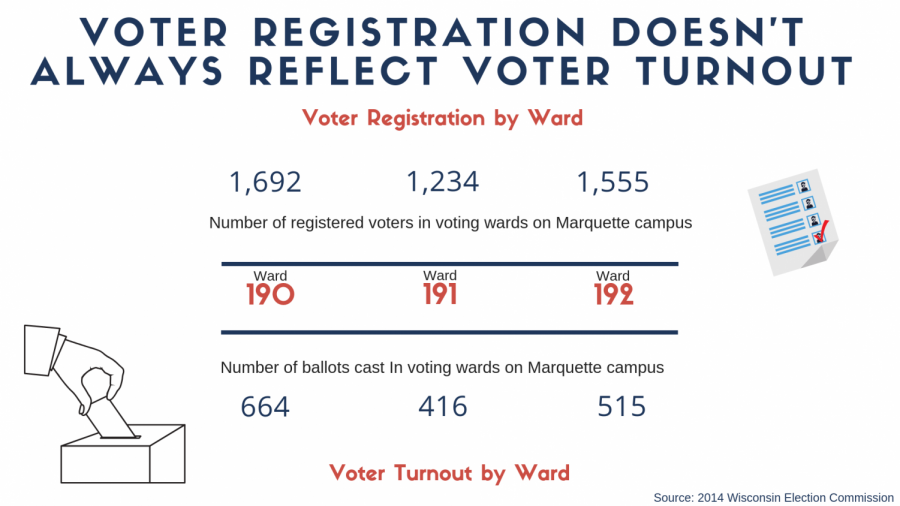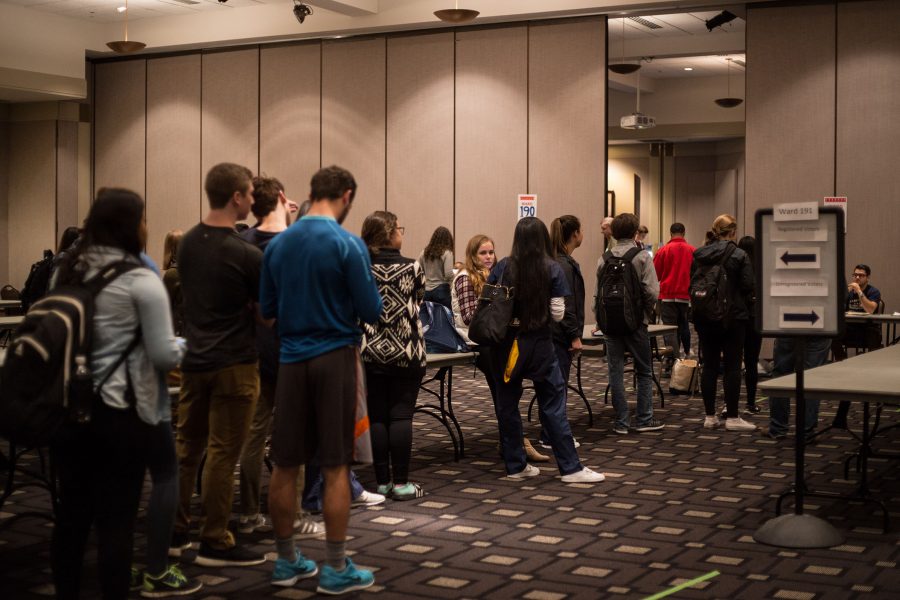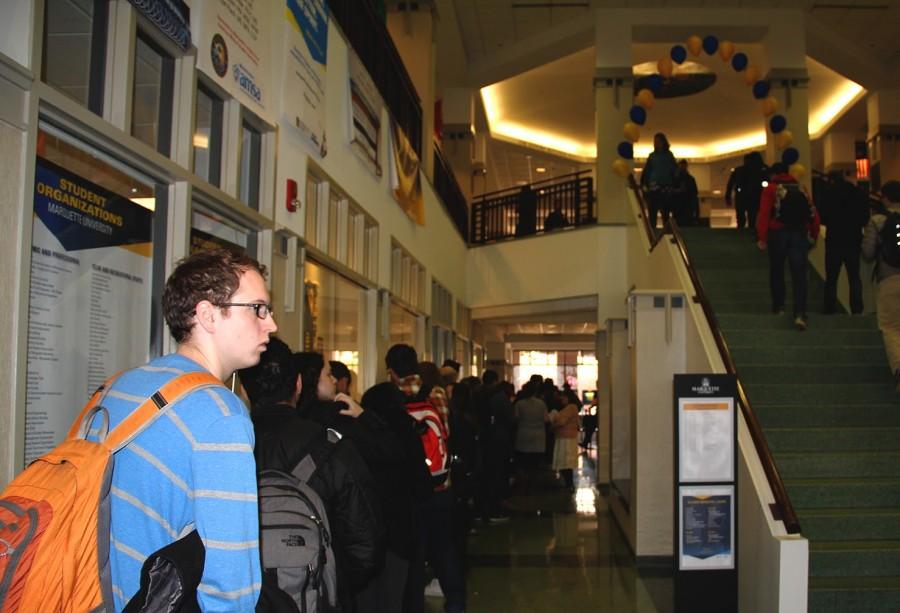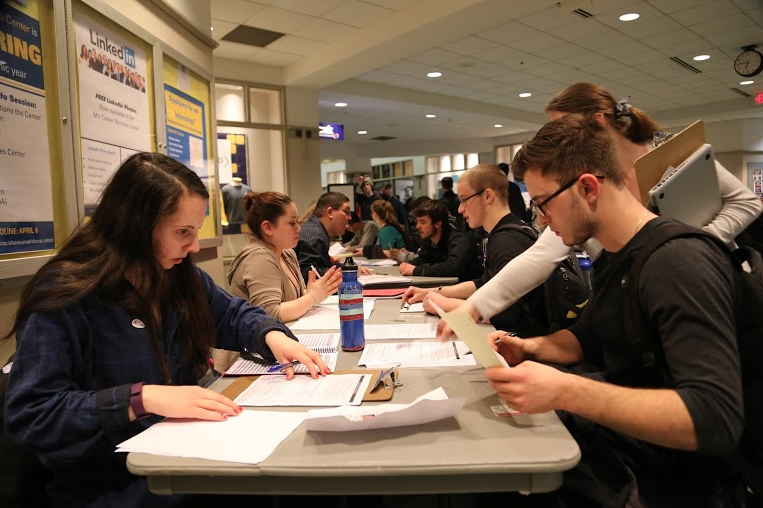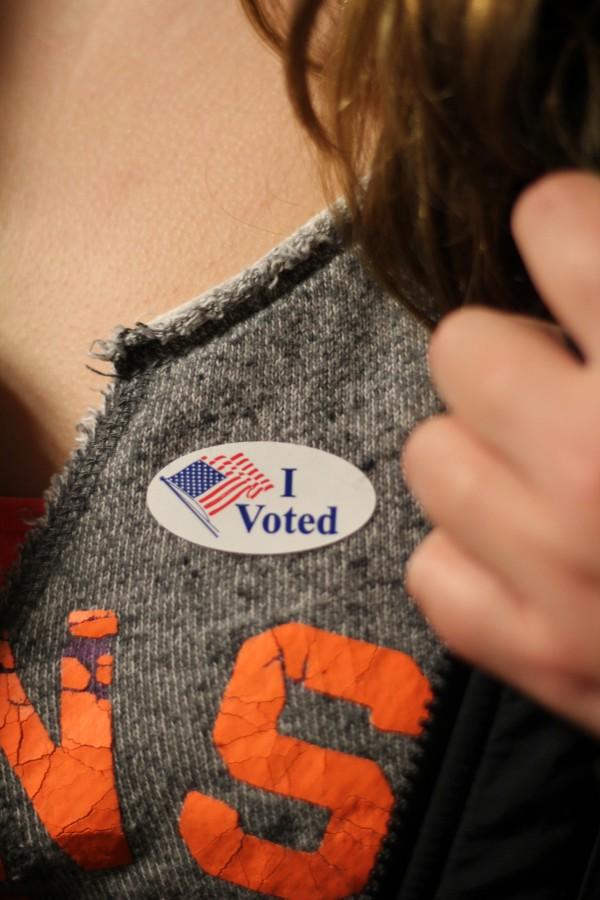“In the end, I guess, I’m glad I’m voting, but I already know my vote didn’t really matter.”
The process for registering to vote from his home state of New York was easy: Owen Brown just needed his home address and driver’s license number. This wasn’t the original plan, though.
Brown, a sophomore in the College of Communication, said he registered to vote online in New York after an argument and peer pressure from a friend over his not voting.
“I was like, ‘If this means so much to you, I’ll do it,'” Brown said.
Brown said he would have liked to cast his ballot in Wisconsin because the races between Democratic and Republican candidates are closer in comparison to New York, where Democrats are frontrunners. He said a lack of knowledge about the candidates on the ballot and confusion over Wisconsin’s voter ID requirements almost kept him from voting at all.
“I am super confused by voter ID laws,” Brown said in a message.
College campuses have historically been a cradle for political activism. More recently, Marquette students have organized and participated in protests and demonstrations over issues ranging from the rights of undocumented citizens to the right for a higher minimum wage. But, on Nov. 6, many Marquette students and Milwaukee residents will likely not register and vote.
In the last midterm election in 2014, 29.1 percent of voting-aged college students in the United States registered and voted, according to Tuft University’s study of student voter engagement. In the 2016 presidential election, 48.3 percent of college students voted.
Tuft’s Institution for Democracy & Higher Education compiles data using millions of student voting records from thousands of universities to calculate student voting engagement rates.
But voter registration does not always lead to voter turnout. In 2014, 2,886 registered voters who registered to vote at the Alumni Memorial Union did not show up to vote according to the Milwaukee election commission. That means that 35.6 percent of registered voters from wards 190, 191, and 192, where Marquette intersects, voted last midterms.
Some students won’t vote for the same reasons that almost prevented Brown from voting; namely, lack of knowledge about candidates and confusion over voter ID requirements.
Neil Albrecht, executive director of Milwaukee’s election commission, said that in recent years students and people in poverty have faced particular challenges when it comes to voting. Both populations tend to be more transient and are more affected by voting registration requirements, such as proof of residence, than voters with consistent residential addresses.
Mary Czech-Mrochinksi, the associate vice president for public affairs, said she is encouraged by the high voter participation that occurred in previous elections. The participation was so high that the election commission moved one of the previous three wards that voted in the Alumni Memorial Union to the Wisconsin Conservatory of Lifelong Learning, 1017 N. 12th Street, to accommodate everyone.
“We saw this need for additional polling site capacity as a really good sign that our students and members of our surrounding community were engaged and interested in previous elections, and we hope that only continues to grow from here,” Czech-Mrochinski said in an email.
Numerous studies indicate eligible voters are less likely to vote in midterm elections than in presidential elections. This is an issue that resonates with Wisconsinites: Nearly 6 in 10 Wisconsin residents think that too few people voting is a major problem, according to The Atlantic’s 2018 voter engagement survey.
Nina Gary, a junior in the College of Arts & Sciences who helped several of her friends register to vote, said she believes voter participation in the millennial population could swing elections.
“As millennials, we should have so much influence over elections,” Gary said.
Research from the Pew Research Center suggests Gary is correct. According to a 2018 study, as of 2016, Baby Boomers made up 31 percent of the voting-eligible population and millennials comprised 27 percent. That’s an estimated 62 million potential millennial voters.
Albrecht said the election commission has been working to boost voter turnout after a substantial decrease in voters between 2012 and 2016. According to the election commission, over 40,000 fewer Milwaukee residents voted in the 2016 presidential election than in 2012.
Why the dip in numbers between 2012 and 2016? Some polls cite a lack of enthusiasm about the 2016 presidential candidates. Albrecht said another significant factor was photo ID requirements implemented in May 2015.
The Wisconsin photo ID requirement mandates that voters bring a driver’s license, state ID, passport or military ID when they vote. This law was advocated for by Republicans on grounds that it would prevent voter fraud. Albrecht said the photo ID requirement is particularly confusing for students because Marquette does not issue IDs that meet the requirements.
Marquette’s Union Station, however, does provide student voter IDs to those interested. Rob Mullens, manager of Union Station, said as of Oct. 26 he had issued 168 student voter IDs.
Albrecht said he believes it takes time for “changes in the voting process to reach people.”
Victoria Duarte is the regional director for the political activist nonprofit Next Gen, which helps students navigate voting and connect political issues to options on the ballot. For Duarte, 2016 was a wake-up call. She said that when millennials don’t vote, the country ends up with hateful agendas.
“Voting is a habitual thing, so we’re trying to not only get [students] politically active, but also connect issues to voting,” Duarte said.
To spur voter engagement as midterms approach, Milwaukee has implemented registration kiosks in libraries, and the election commission is using social media to inform citizens.
“We’ve worked very hard over the summer, as have a lot of community organizers and community leaders and the college campuses, to boost those numbers back up,” Albrecht said.
Marquette’s administration is making an effort to engage student voters as well, through a voting website that provides information pertaining to voting and ID requirements.
“We want our students to be engaged citizens,” Czech-Mrochinski said, “It’s part of Marquette’s mission as a university.”

